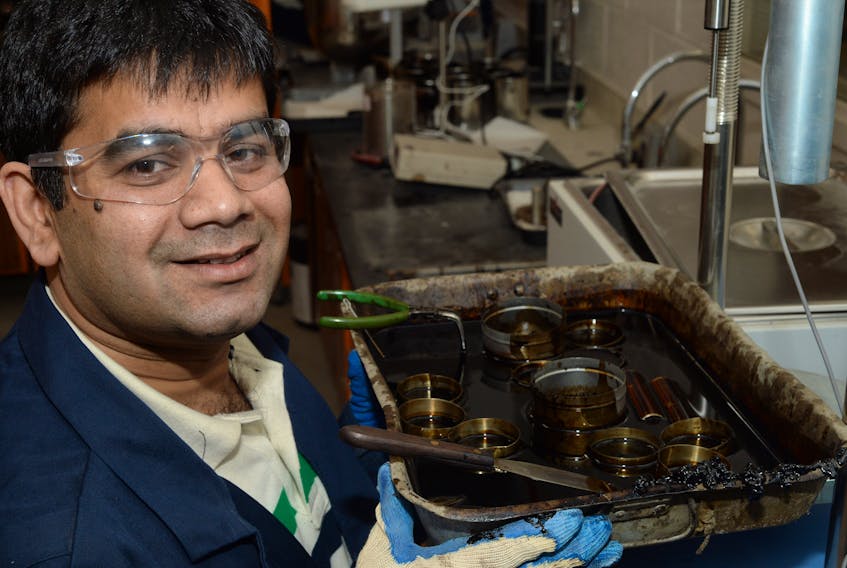ST. JOHN'S, N.L. — Kamal Hossain has sunk into potholes and is stuck in a lot of ruts — researching those road woes, that is.
Potholes, ruts, cracks and other persistent problems plaguing the province’s roads and city streets are among his areas of expertise — he’s an assistant professor of civil engineering at Memorial University.
Hossain’s attention to the science of roads is so intense that when he relocated to St. John’s about a year and a half ago from Illinois, he stopped every 50-60 kilometres on the 5,000-kilometre drive and took about 400-500 photos while travelling through numerous states and provinces.
When Hossain rolled off the ferry in Port Aux Basques and continued to St. John’s, he noticed a huge shift in the condition of the roads — potholes, ruts and pavement that in various places had the top shaved off.
He hopes the provincial government will accept a pitch to partner with MUN to research the right asphalt recipe for Newfoundland and Labrador’s roads.
Every year, those roads and streets are the bane of fed-up motorists who dodge potholes, ruts and cracks.

An enormous pothole on the Burgeo highway.
While it’s impossible to do away with every single pothole, rut and crack forever, a durable asphalt solution, said Hossain, would reduce the problem and save the province money on maintenance in the long run.
He said that as he dug into the state of the roads, he concluded the province is using a several-decades-old methodology when it comes to pavement mixture and should adopt a modern, science-based approach.
Part of his proposal would see an enhanced lab created to devise the best pavement mix for the province’s climate.
“To my knowledge we are not following the advanced system for selecting our material for our roads,” Hossain said.
With the massive tax dollars put into road maintenance, Hossain said it’s time the province focused on a local research lab program to tackle the road problems with good data and science.
Hossain’s students are already working on various research projects in MUN’s advanced road and transportation engineering lab, including the cause of rutting, the effect on the roads from climate change and extreme weather events, and other road-safety issues. Samples have to go to Ontario for testing, but he would like to see that capability here, with advanced equipment, for the benefit of local roads and streets.
“We need to put into the asphalt mixture better information,” Hossain said.
“We believe we can create a good program in Memorial so we can create knowledge-based information.”
The roadbed is good quality and there’s less traffic in Newfoundland and Labrador than in Ontario or Alberta, Hossain noted.
“So why are we seeing such a bad road? … We need to develop a good research program. … There are a lot of tools available and we need to adopt those tools,” he said.
Hossain said he sent a proposal to the government for a joint research program.
“It takes time, I understand, he said.
“The science is here. We need to use those technologies. If we have those technologies, it should give us the better road.”
One thing that could cut down on rutting is for people to stop using studded tires, because they don’t really help in this climate, Hossain said. He also said the advancement in winter tire technology is such that there are treads that effectively do the same job as studs.
Hossain said studded tires can be hazardous and contribute to hydroplaning.
Meanwhile, the Transportation and Works’ five-year provincial roads plan, 2019 edition, notes an asphalt testing pilot project began in 2017 to examine the asphalt specifications best suited to the province’s climate and environment.









